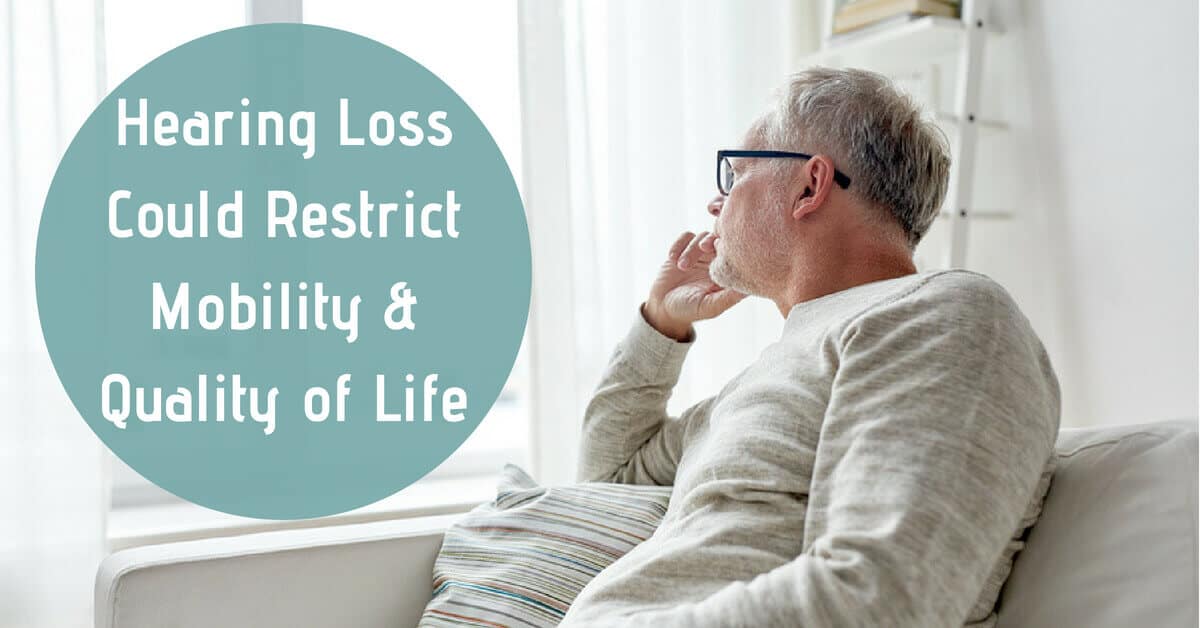
- Signs Your Earwax Buildup Needs Professional Attention - May 29, 2025
- A Step-by-Step Look at How Hearing Aids Make Sounds Sharper - May 5, 2025
- Causes of Conductive Hearing Loss? - April 27, 2025
As the third most common condition in the United States, hearing loss is often undertreated and undiagnosed. Unfortunately, this leads to a number of negative health consequences, as hearing loss has been linked to conditions such as dementia, depression, anxiety, and stress.
If you experience a hearing loss, then you know how challenging it is to have conversations with your loved ones and to locate sounds in your environment. Treating your hearing loss with hearing aids is a beneficial way to reconnect you to the world around you. A recent study from Finland has revealed how hearing loss may affect one’s quality of life and mobility.
Studies Reveal that Movement in Older People is Often Negatively Affected by Hearing Loss
A collaborative series of studies from Finland – with researchers from the University of Jyvaskyla and the University of Tampere – reveal that “the movement of older people often is negatively affected as a result of their hearing loss.” In turn, this could lead to a lower quality of life.
In a series of studies, researchers monitored 848 men and women, between the ages of 75 and 90. Over a two-year monitoring period, researchers found that “people who were hard of hearing were more than twice as likely as others to limit their movement only to nearby areas.” Results from the studies also show that “people who experienced hearing problems in different everyday situations moved less within their local area than those who considered their hearing to be good.”
According to doctoral student Hannele Polku, one of the researchers, hearing loss radiates to other areas of a person’s life: “For example, a person with many everyday social contacts and communication with others may feel that even a minor hearing loss may affect by everyday functioning. On the other hand, a person more inclined to enjoy domestic tasks carried out on one’s own doesn’t experience the same number of problems due to a change of similar degree in hearing.”
These studies were published in Journal of Gerontology (2016) and BMC Geriatrics (2015), and were part of the international project, “Hearing, Remembering, and Living Well.”
The Effects of Hearing Loss on Everyday Life
Hearing is the only sense that doesn’t “turn off.” For this reason, alarm clocks and fire alarms are so useful! From the moment you wake up to the moment you go to bed, and even while you are asleep, your sense of hearing is on and keeps you connected to the world around you.
In our personal lives, hearing plays a big role in our most important relationships. Studies have found that interpersonal relationships tend to suffer if one partner experiences untreated hearing loss. In terms of employment, hearing loss – if left untreated – interferes with concentration, communication, memory, and productivity. For this reason, studies have indicated that people with untreated hearing loss tend to have lower earning power than colleagues who treat their hearing loss with hearing aids.
For people with normal hearing, our sense of hearing is often taken for granted. Walking out the door, you may hear the tea kettle whistle in the kitchen. This notifies us that we left the water on and forgot it. On the way to the grocery store, we may hear a cyclist’s bell, informing us that they are nearby. At the grocery store, you may need help finding an item – speech recognition is often adversely affected by untreated hearing loss.
It’s no wonder that untreated hearing loss limits one’s desire to go out into the world, run basic errands, and communicate with others.
Identifying & Treating Hearing Loss
As an invisible condition, hearing loss usually occurs over a gradual period of time. As a result, people at first may not be aware that they have a hearing loss. According to the Hearing Loss Association of America, people wait an average of seven years from the time they first experience changes in their hearing until they decide to seek treatment.
As we can see, leaving hearing loss untreated radiates to many different areas of one’s life. The good news is that hearing loss is easily treated. It just takes a simple, painless hearing test to understand your hearing abilities.
Visit Us at Hearing Aid Specialists of the Central Coast
There’s no reason to live with untreated hearing loss. To schedule a hearing test and consultation, contact us at Hearing Aid Specialists of the Central Coast today.
